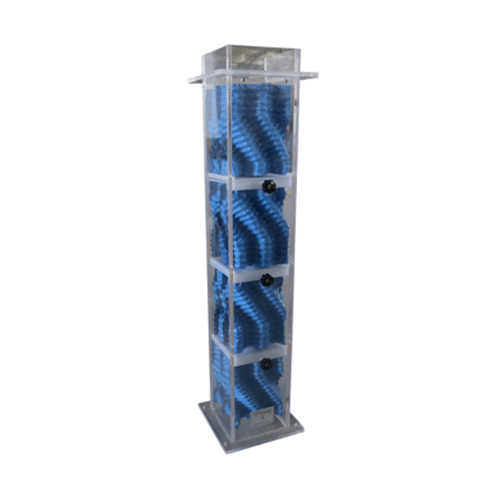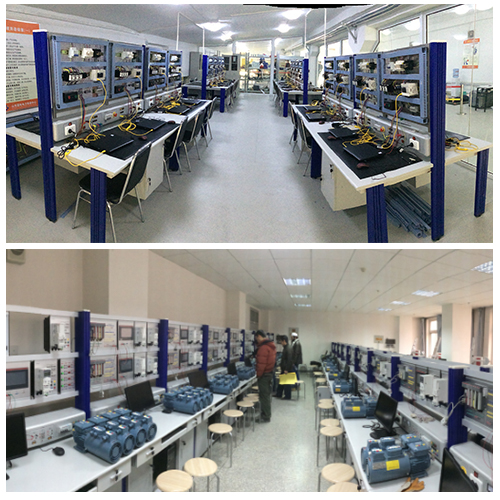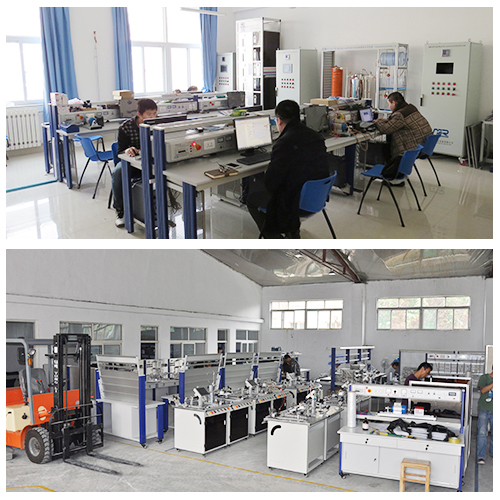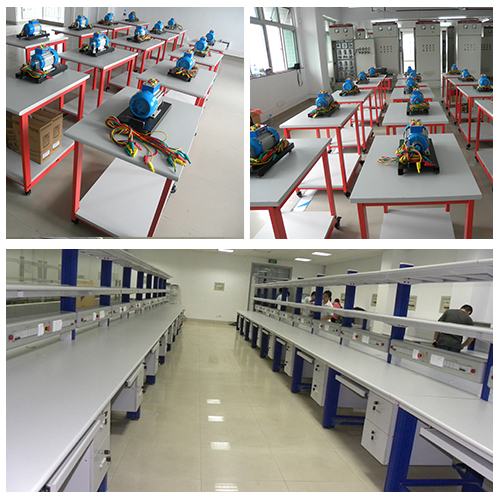MR-WL 320.04 Cooling Column Type 5 Teaching Equipment Educational Thermal Laboratory Equipment

1 Product overview
1.1Overview
The cooling tower body of the MR-WL 320.04 test bench is a cylindrical structure made of transparent and observable acrylic material, and a variable area built-in packing is designed in the middle to compare and observe the cooling capacity of different layouts of packing (see the table below for details) ) The middle packing tray can be adjusted to change the heat exchange area.
The air enters the cylinder from the bottom and flows upward; the inlet section and outlet section are connected with a differential pressure gauge to measure the pressure loss.
1.2 Features
MR-WL 320.04 cooling tower type 2 can be connected to MR-WL 320 and compared with other types of cooling towers;
The import and export data of the cooling tower can be digitally displayed by instruments;
The data of each point of the workbench cycle can be displayed on the PC through a USB device;

2 Preview content
2.1 The main factors affecting heat and moisture transfer
In a cooling tower under normal operation, the main factors affecting the heat transfer process of the cooling tower are the inlet air wet bulb temperature (absolute saturation temperature), inlet water temperature, air volume, and circulating water volume. The water volume and the air volume The ratio of is called the water-to-air ratio.
(1) The influence of the inlet air wet bulb temperature:
Control other influencing factors unchanged (inlet water temperature, water volume, air volume), and the heat transfer power (enthalpy difference) of the entire heat transfer process decreases with the increase of outdoor air wet bulb temperature, which means that the cooling tower's heat dissipation capacity is worse .
(2) The influence of inlet water temperature:
Control other factors unchanged, only change the inlet water temperature, the heat exchange power of the entire heat exchange process increases with the increase of the inlet water temperature, which represents the stronger the heat dissipation capacity of the cooling tower.

(3) The influence of air flow:
Control other factors unchanged, only change the air flow rate. As the air volume increases, the amount of air contacted by the unit water volume increases, and the cooling tower's heat dissipation capacity increases.
(4) Influence of water volume:
Control other factors unchanged, only change the water volume. As the circulating water volume of the cooling tower increases, the amount of air contacted by the unit water volume decreases, and the heat exchange decreases. The outlet water temperature increases with the increase of the inlet temperature and outlet temperature of the circulating cooling water. The temperature difference decreases, so the cooling capacity of the cooling tower decreases.




